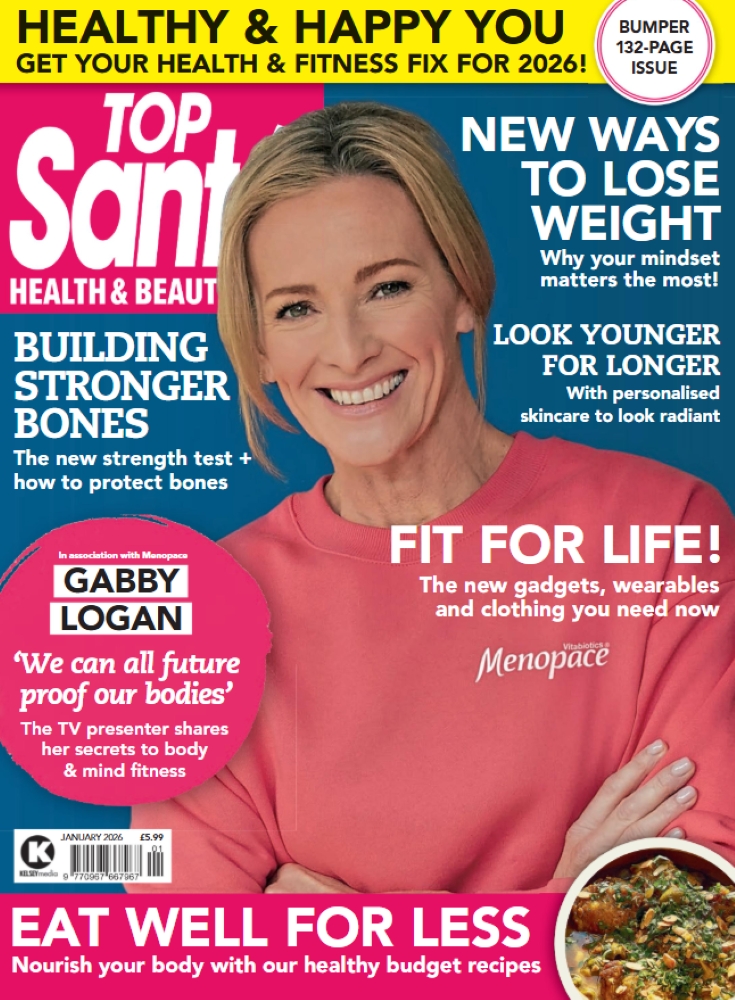In light of Strictly Come Dancing’s Amy Dowden announcing that she is to undergo a second mastectomy amid her breast cancer battle, I spoke to Oncology Specialists Kelly Sturm and Amanda Grilli on how to regain confidence after breast cancer recovery
Words: Amy Dowrick | Images: Pexels
On an Instagram post earlier this week, the BBC dancer announced that “following a recent appointment with my incredible medical team, we’ve decided that I’ll be having another mastectomy this week.
“They’re confident that, all going well, I can expect a straightforward recovery.
“Once I have healed, I look forward to rejoining my Strictly family.”
After sharing her diagnosis in May 2023, Dowden had a mastectomy and underwent chemotherapy, with her treatment preventing her from being able to compete in the BBC show. She had rejoined the show this year alongside former Apprentice contestant and social media star Thomas Skinner, before their elimination in week two.
The dancer shared how she had found strength in returning to the show following her treatment and wanted to represent cancer survivors on the dancefloor. But, following her elimination this year, she said at the Women of the Year Awards, “I’m gutted to be out of the competition because I really wanted to represent cancer survivors – and I feel like I’ve let them down.
“I keep telling myself, coming back onto Strictly and getting back on the dancefloor will show ladies and men there is life after a cancer diagnosis.”
Life after recovery
Around 25-40% of women diagnosed with breast cancer undergo a mastectomy, and it’s not at all uncommon for women in recovery to try to slot back into normality soon after – and many feel disappointed when they can’t.
“Many women going through cancer treatment put immense pressure on themselves to get back to their pre-surgery routines quickly,” says Oncology Specialist and founder of Cancer Rehab PT, Kelly Sturm. “We live in a society that often expects you to ‘bounce back fast’, combined with an internal drive to show that cancer hasn’t won.
“However, rushing recovery can be counterproductive. Healing takes time, and there’s no weakness in honouring that process.”
How can a mastectomy affect self-esteem?
According to Breast Cancer Now, 44% of women with breast cancer say it has negatively impacted their body image, with 40% reporting they didn’t discuss their body image or how they felt about their body with anyone.
“Breasts are often deeply connected to femininity, sexuality, and body identity,” says Kelly. “Women may struggle with feeling ‘incomplete’, have concerns about attractiveness, or a disconnect between their internal sense of self and their changed body.
“While some women adjust relatively quickly, others need significant time and support to rebuild their relationship with their body, and it’s important to give oneself some grace during this time.”
And while breast reconstruction can be considered, it is not essential for regaining confidence – the path to self-acceptance is also an emotional one.
Kelly says, “Even as a physiotherapist, I see how critically important emotional and mental health are to healing – they’re as vital as physical rehabilitation.
“While physical recovery addresses the visible healing, psychological support helps women process trauma, grief, identity changes, and fear of recurrence.”
How to regain confidence after breast cancer
“Rebuilding confidence means reconnecting with yourself on a deeper level, beyond the physical recovery,” says Oncology Physiotherapist and founder of Well Beyond Breast Cancer, Amanda Grilli.
“It’s crucial to care for your emotional and mental wellbeing alongside your physical recovery. Many individuals find that taking time to process the trauma, fear, and life changes that come with a breast cancer diagnosis and treatment is essential to feeling whole again.”
Finding community
Focusing on the positive relationships in your life and leaning on a support system will allow you to take some weight off your own shoulders when expressing how you feel. Admitting that you are struggling also allows people to help.
“Support from therapists, peer groups, and loved ones can provide a safe space to openly discuss concerns, ultimately helping to improve overall quality of life,” Amanda says.
“Connecting with other survivors through support groups can also be incredibly validating”, adds Kelly.
Reconnecting with your body
Kelly says, “incorporating gentle exercise or activities you enjoy helps you reconnect with your body in positive ways.
“Actively participating in your recovery, even in small ways like a 10-minute walk, can provide you with a sense of control in a situation where so much of the journey has felt beyond control.”
“Start small and be gentle with yourself,” says Amanda. “Many individuals are afraid to move after surgery, and that’s completely understandable. Working with a specialised physiotherapist can help you safely regain movement in your daily life and learn targeted exercises that support healing and help you feel more at ease in your body.”
Seeking professional help
Never be afraid to ask for help. Professional support can provide great tools to help you navigate feelings of low self-esteem if they persist.
Kelly says, “We know that a combination of exercise and psychological support is proven to be the most effective approach for treatment, but many women feel that the services and emotional support drop away once cancer treatment ends – which is when they need it most.”
Making an appointment with a therapist or consulting an oncology specialist can be a powerful step towards recovery, no matter the stage you are in on your recovery journey.
Move at your own pace
Every woman’s recovery journey is unique, and it’s important to celebrate each step moving forward.
Kelly says, “give yourself permission to heal at your own pace; there’s no ‘correct’ timeline for feeling like yourself again”
“Allow yourself the space to feel every emotion and to honour all that your body has endured and overcome,” says Amanda. “Over time, these small acts of self-compassion can help rebuild confidence and a renewed sense of self.”
And above all, remember to acknowledge and celebrate each milestone along the way, no matter how small.”







